Remembering a railway that has been closed for 60 years

Alan McLellan is hosting a presentation on the Dumfries to Stranraer line
- Published
Only those of a certain vintage can remember travelling between Stranraer and Dumfries by train.
The 73-mile (120km) line shut on 14 June 1965 - one of numerous victims of Beeching cuts to routes deemed no longer economically viable.
Despite the passage of time, there are still sporadic calls to consider reopening it as part of efforts to improve connectivity in south west Scotland.
Its story has been celebrated with a talk in Dumfries to mark six decades since the last passengers used the line, which was also called the Port Road.
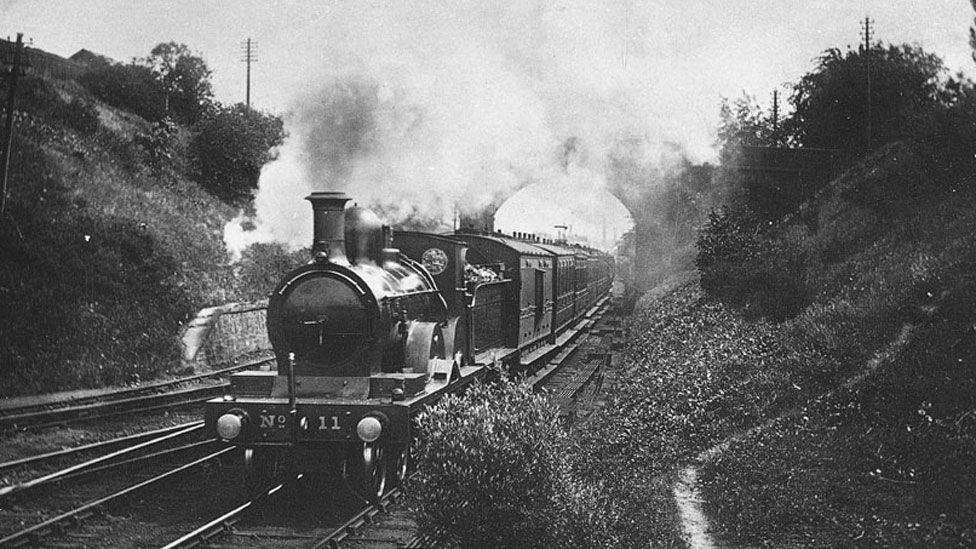
Trains have not run between Stranraer and Dumfries for 60 years
The reopening of the Borders Railway between Tweedbank and Edinburgh has fuelled a lot of hopes of similar projects in other parts of the country.
Constant calls for improvement to road links between Dumfries and Stranraer have also added to nostalgia for train journeys between the towns.
Rail enthusiast Alan McLellan, from Dalbeattie, who gave the talk on its story, said it was a shame the line had been shut.
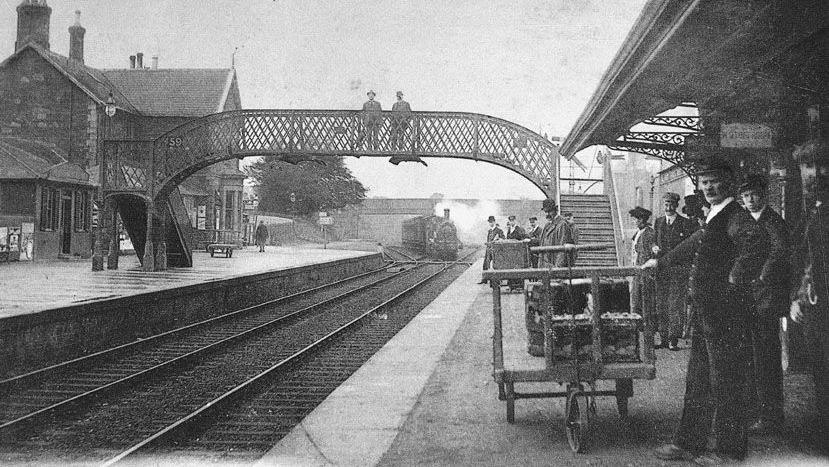
Stations like Castle Douglas last saw passenger services in 1965
"It's sad because looking at it now, you've got the heavy traffic on the A75, and there's nothing going east to west," he said.
Mr McLellan said the line had, at least initially, been a success after it opened in the 1860s.
"I understand at the time it was profitable - it started in Dumfries and there were about 26 stations, and it went all the way to Stranraer," he added.
"Stranraer at the time was a port and there must have been around 10 trips per day.
"It was used heavily during the war because you had the big munitions factory in Dalbeattie, so you had two stops there."
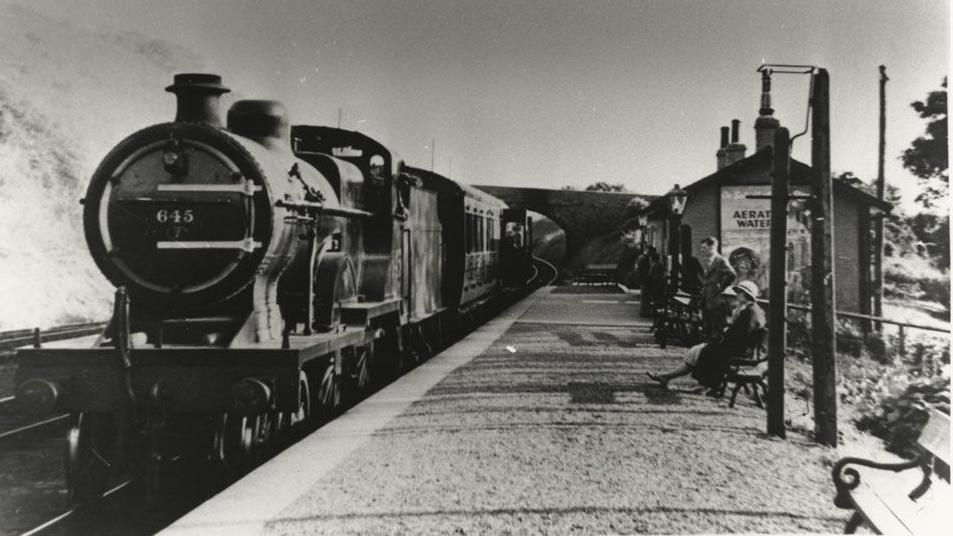
The Beeching cuts affected many rail lines around the country
However, usage dwindled down the years and it was targeted by Dr Richard Beeching in a review of the rail network.
That ultimately led to hundreds of stations and 650 miles of railway line being closed in Scotland.
Many years later, Mr McLellan believes there is the potential to open up some stretches as walking or cycling routes.
"In a place like Newton Stewart, you can see where people have started clearing it and making a track so it can be done," he said.
"It could be a nice walk, if you had enough volunteers you could open the majority of it up for walking."
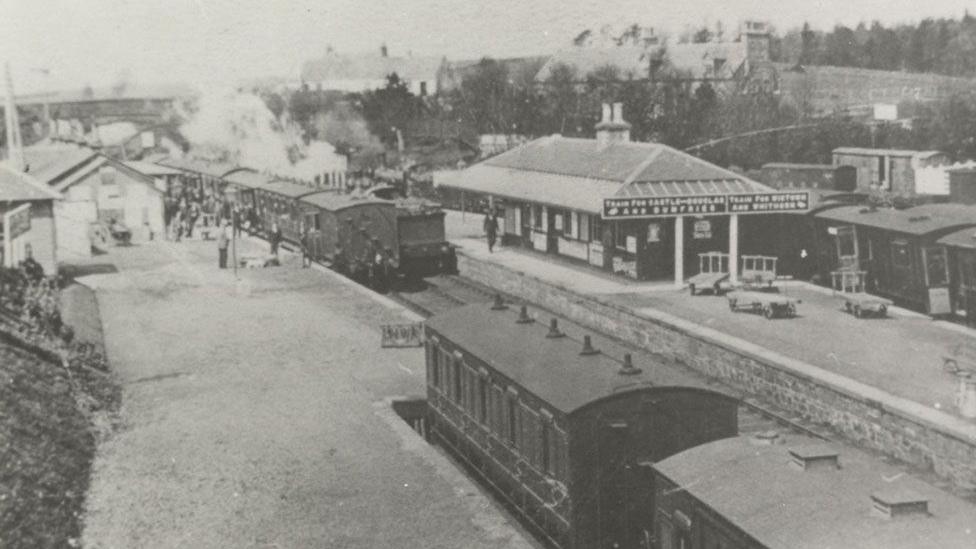
Mr McLellan said parts of the route could be reopened to walkers and cyclists
He said reinstating the railway would be a harder job because many stretches had "completely gone" and there was no chance of building.
However, he said walking and cycling would be an option - including from New Galloway across to Gatehouse of Fleet.
Now he has held a talk at the River of Life Centre, near Dumfries station, to highlight the route's history and potential.
"I walked the line to raise money for Prostate Scotland and I filmed as I went," he said.
"I've got the original footage of the last train going from Dumfries to Stranraer, so people can see the train going, then me walking."
He also dressed as a station guard to welcome people.
Perhaps, in the process, he turned the clock back more than half a century to when people could catch a train right across Dumfries and Galloway.
- Published28 June 2019
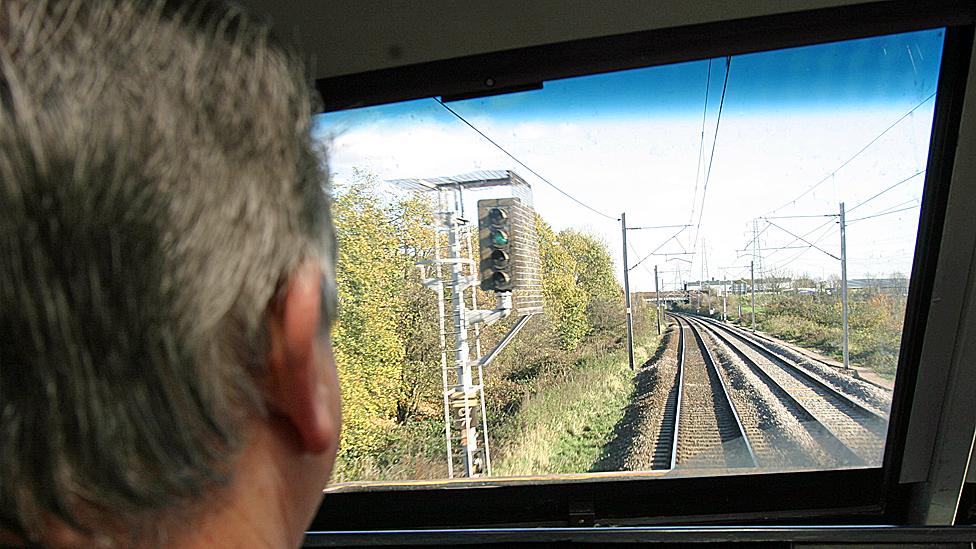
- Published27 March 2013